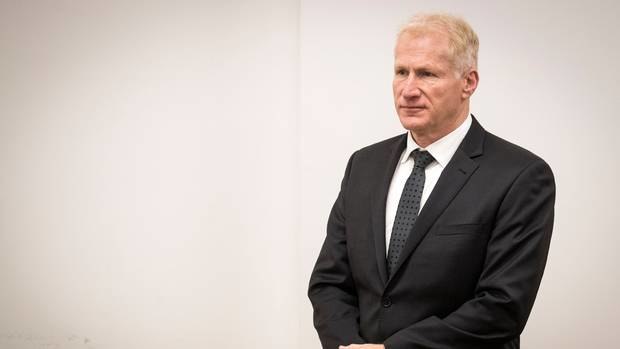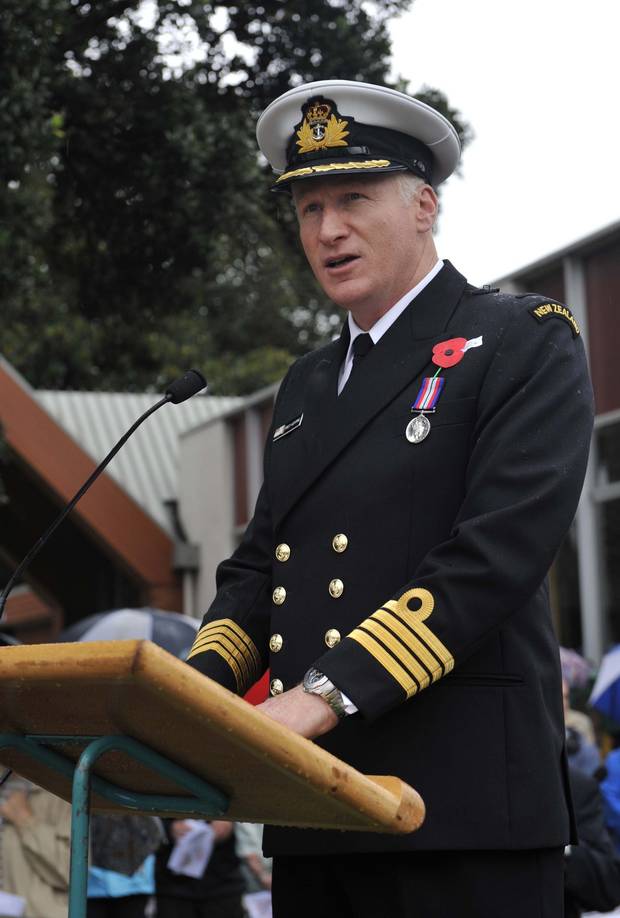
Commodore Alfred (Fred) Keating was one of the Royal New Zealand Navy's highest-ranking officers and in July last year was serving as the country's senior defence attache in Washington.
The New Zealand Herald first reported the allegations in March.
On July 27 last year, a hidden camera was found in a unisex bathroom on level three of the embassy, where Keating was stationed.
It is alleged Keating planted the small covert camera.
The former commanding officer of the Devonport Naval Base denies the allegations and appeared again today before Judge Russell Collins in the Auckland District Court.
The Crown told the court today a potential trial would hear computer-based evidence.
A reserved date for trial was set for 10 days next April, while Keating was remanded on bail.
Afterwards, Keating, who has a new legal team led by top lawyer Ron Mansfield, provided a statement to the Herald.
"I am very disappointed to find myself caught up in this incident at the embassy," it read.
"Sadly, the allegation I now face has already tarnished my personal and professional reputation before I have even had an opportunity to understand or challenge the case brought against me."
Keating trusted that the presumption of innocence was respected and that he would have an opportunity to review the Crown's evidence against him.
"I intend to answer the allegations in court ... however, I expect that it will become apparent at the appropriate time that there is much more to this case than that currently [is] able to be reported on.
"I look forward to the opportunity to answer the allegation in court.
"I certainly intend to clear my name and expect this will be achieved in time."

After a New Zealand Police investigation in Washington and a search warrant when Keating returned to New Zealand in November last year, charges were filed in the Auckland District Court on February 28.
He is charged with allegedly attempting to make an intimate visual recording of another person at the diplomatic building between July 26 and July 28 last year.
Keating appeared in court again on March 29 when he pleaded not guilty, electing trial by jury.
Then, just two days after his plea, Keating resigned from his post, the New Zealand Defence Force (NZDF) has confirmed.
However, questions were raised about why Keating was not retained in uniform and court martialled at the prerogative of the Chief of Defence.
The Herald also revealed that the Government was informed by the NZDF of a police investigation at the embassy last year.
Comments
Following with interest, there has to be more to this - what who knows but lets all have a long weight, I'll put my feet up, maybe order a left handed screwdriver, some striped paint and take a saucer of milk to the seacat and wait, to hear the full story,











